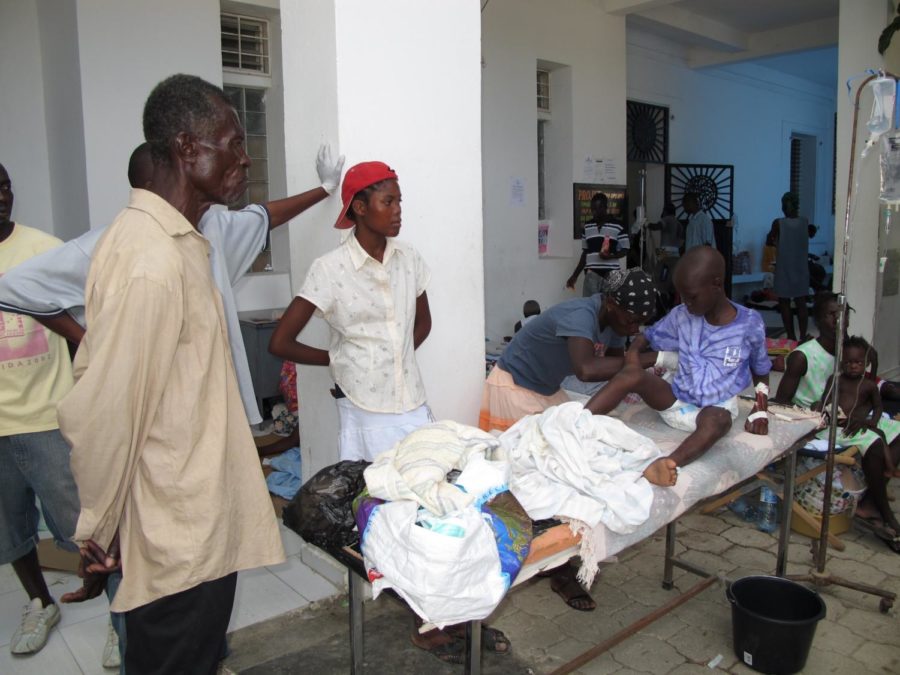Haiti’s cholera outbreak described as ‘alarming’
Photo: Jose Armijo/CNN Wire Service
Saint Nicolas Hospital in Saint Marc, a town northwest of Port au Prince in Haiti where hundreds of people come from all ages creating chaos with the outbreak of cholera that has so far killed more than 700 people.
November 12, 2010
Medical workers in Haiti on Friday called the upward trend in deaths and illnesses in the cholera outbreak “alarming” as the earthquake-devastated nation’s already strained health system overflowed with the sick.
In the slum of Cite Soleil on the outskirts of Port-au-Prince, Doctors Without Borders had seen 216 cases of cholera at Choscal Hospital. Five days ago, that number was only 30.
Stefano Zannini, the head of mission for Doctors Without Borders, said his staff was seeing seven times the cases they were seeing three days ago.
“The trend is extremely, extremely alarming,” he said. “We have not reached a peak yet but it could arrive next week.”
The death toll climbed Thursday to 796, according to Haiti’s Ministry of Public Health and Population. More than 12,000 people have been sickened.
Epidemiologists predict the outbreak could last for months and say the entire nation of almost 10 million people is at risk because they have no immunity to cholera.
The United Nations warned that Haiti is facing one of the most severe outbreaks of the disease in the past 100 years. It appealed to international donors for almost $164 million in response money and said it anticipates as many as 200,000 people to show symptoms of cholera.
Of grave concern now are confirmed cases that originated in the tent cities of Port-au-Prince, which sprang up to shelter those left homeless by the earthquake last January. Health officials fear that infection could spread quickly in congested, unsanitary conditions and in impoverished neighborhoods where clean drinking water is at a premium.
Symptoms of cholera, an acute, bacterial illness caused by drinking tainted water can be mild or even non-existent. But sometimes they can be severe — profuse watery diarrhea, vomiting and leg cramps, which can cause rapid loss of body fluids and lead to dehydration and shock.
If left untreated, a person can die within hours.







